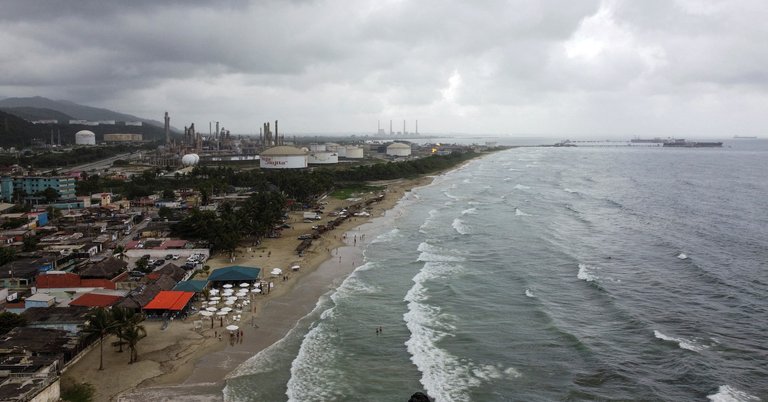The Latin American Report # 527

Venezuela increased its crude oil export volume by 8% in June compared to the previous month, reaching an average of 844,000 bpd, with China absorbing 9 out of every 10 barrels. The trade dynamic with the Asian giant shows a tendency for mostly independent refineries based there to monopolize Venezuelan crude contracts, while in May around 75% of exports were reportedly destined for China. Among the contracted variants is the heavy-grade Boscan crude, used in asphalt production. The oil-rich country, economically and commercially targeted by the United States but somehow still surviving, also shipped around 233,000 metric tons of byproducts and petrochemicals, in this case less than in May (329,000). The Trump administration terminated licenses that allowed U.S. company Chevron and European companies like Spain’s Repsol and Italy’s Eni to exploit and import Venezuelan crude—always under strict conditions regarding payments.
 Source
SourceThe Reuters cable reporting on the performance of exports by the state-owned PDVSA also reflects the dramatic drop in exports to Cuba, which for years—especially during Hugo Chávez’s era—received significant oil assistance as part of an agreement that, on its side, involved cooperation in health services. Amid a crisis where energy is the most complex variable, Venezuela exported only 8,000 bpd to Cuba, a sharp reduction compared to the 32,000 bpd averaged in 2024, which itself was a steep fall from the 56,000 in 2023. The Cuban oil import-export company has been designated by the U.S. Treasury Department since the first Trump administration, and this—combined with the relentless and targeted U.S. persecution of the Island’s financial operations—makes contracting more difficult for a country completely stripped of international currency reserves. Despite that fact, I believe there are other reasons for the sustained change in bilateral trade routines, including Venezuela’s lack of resolve to support Cuba during a moment of high sociopolitical tension that could become a major political turning point.
Irregular Migration
Despite the heavy blow that Donald Trump’s return to the White House represented for the tens of thousands of Latin Americans hopeful for the “American Dream,” the realities and urgencies are so dire that many still try, as shown in this cable from the Spanish agency EFE. The winners of this whole story are those tied to the human trafficking business, increasingly permeated and controlled by cartels. Many people got stuck in Mexico while waiting for an appointment through the now-defunct CBP One mobile application, like a Cuban woman stranded in Tapachula, in the south of the Aztec nation. Those on the U.S. side also live in constant uncertainty, as reflected in this other article from EFE. “What is most damaging about this situation is the mental health issue—day after day, young people are seeking psychological help, looking for ways to escape this persecution,” says a Haitian activist in Puerto Rico, where just over half a thousand undocumented immigrants were arrested by ICE in the first half of the year, mostly Dominicans. After the approval of the so-called “big, beautiful” bill, the chances of intensifying the crackdown on immigrants will increase considerably.
This is Donald Trump joking and laughing about alligators killing people at “Alligator Alcatraz” in Florida.
— Shane Claiborne (@ShaneClaiborne) July 1, 2025
No Christian who takes Jesus seriously can defend this.
It is evil.
It is sick.
It is diabolical.
Every human being is made in the image of God. pic.twitter.com/YJiQkLULhC
